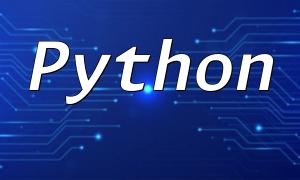In modern software development, ensuring the security of applications is crucial. Fuzz auditing, as an effective testing method, helps developers identify potential vulnerabilities. This article will explore the application and practice of Fuzz auditing in PHP, assisting developers in improving PHP application security.
<h3>What is Fuzz Auditing?</h3>
<p>Fuzz auditing is a technique used to test applications by providing random or invalid inputs. It simulates attacker behavior, uncovering flaws and vulnerabilities in the code. Fuzz auditing is especially important in PHP, as many websites and applications are built using this language.</p>
<h3>Advantages of Fuzz Auditing</h3>
<p>One of the main advantages of Fuzz auditing is its automation capabilities. Developers can quickly run a large number of tests without manual intervention, significantly improving code security and stability.</p>
<h3>Improving Code Quality</h3>
<p>Through Fuzz auditing, developers can identify potential security issues early and fix them, avoiding vulnerabilities and security risks that may arise later. This is especially important for PHP developers, as insecure code can lead to data breaches and other security concerns.</p>
<h3>Reducing Maintenance Costs</h3>
<p>By discovering security issues early on, Fuzz auditing helps reduce the time and resources required for fixing vulnerabilities later. Regular Fuzz auditing ensures high-quality code, ultimately lowering long-term maintenance costs.</p>
<h3>Implementing Fuzz Auditing in PHP</h3>
<p>To effectively implement Fuzz auditing in PHP, developers can adopt the following strategies:</p>
<h3>Using Fuzz Testing Tools</h3>
<p>Many Fuzz testing tools are available to help automate the security auditing process. For example, AFL (American Fuzzy Lop) is a popular open-source Fuzz testing tool that supports multiple programming languages, including PHP. Using these tools can significantly improve the efficiency and coverage of Fuzz auditing.</p>
<h3>Integrating Fuzz Auditing into the CI/CD Pipeline</h3>
<p>Integrating Fuzz auditing into the Continuous Integration (CI) and Continuous Delivery (CD) pipeline ensures that security audits are automatically performed every time code is committed. This practice helps identify issues early, improving the overall security of the project.</p>
<h3>Case Study: Fuzz Auditing in PHP</h3>
<p>Suppose we have a PHP application that accepts user input and performs certain operations. We can use Fuzz auditing to send random strings to the application to test its ability to handle invalid inputs. Below is a simple example:</p>
<pre class="language-php">
function processInput($input) {
// Only process valid input
if (is_numeric($input)) {
return $input * 2;
} else {
return "Invalid Input";
}
}
// Simulating Fuzz inputs
$tests = ['abc', '123', '', '###', null];
foreach ($tests as $test) {
echo processInput($test) . "\n";
}
<p>With this example, developers can see how invalid inputs are handled and understand the potential security risks. This small example demonstrates the importance of Fuzz auditing in PHP for improving application security.</p>
<h3>Conclusion</h3>
<p>Fuzz auditing in PHP provides developers with an efficient way to identify and fix security vulnerabilities in their code. By using Fuzz testing tools and integrating auditing into the CI/CD pipeline, developers can significantly improve the security of their code and reduce future maintenance costs. As PHP continues to be widely used in modern web applications, Fuzz auditing will play a key role in ensuring the security and stability of PHP applications in the future.</p>










